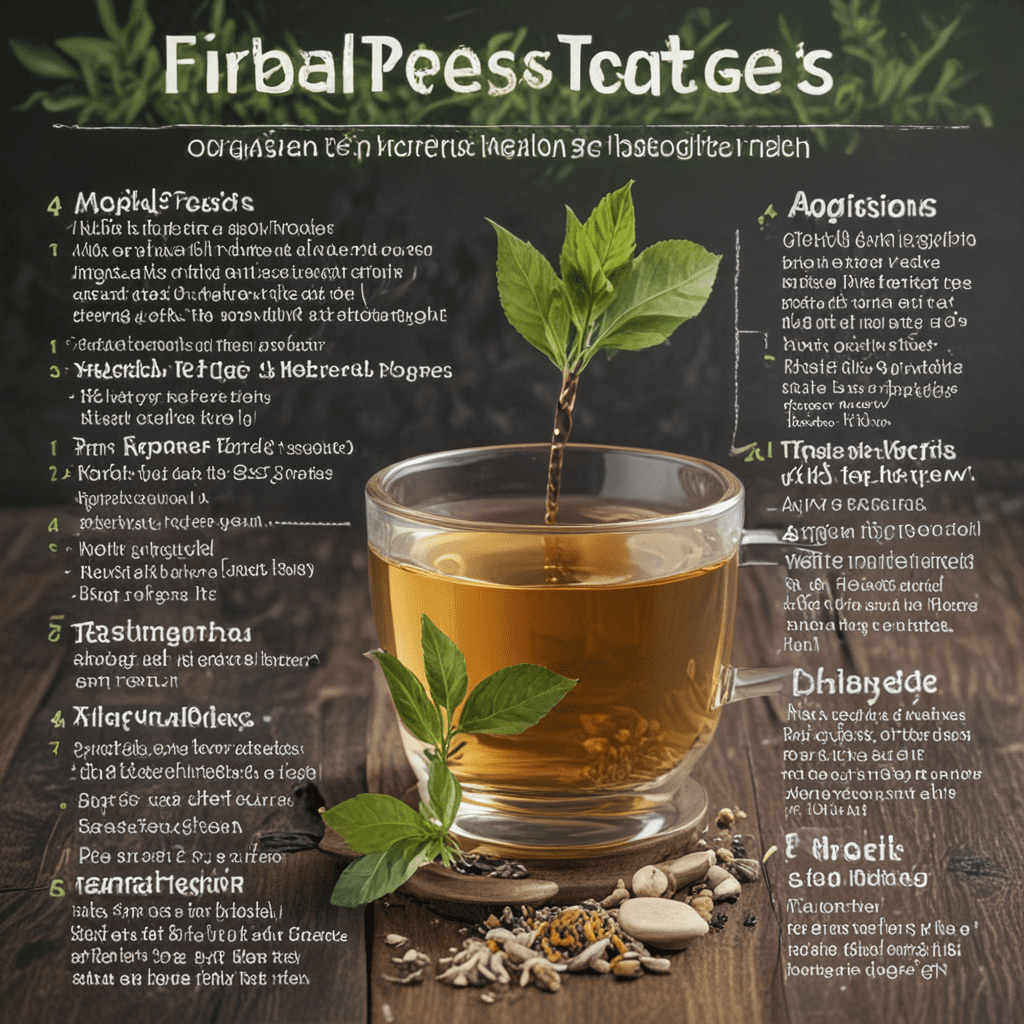
1. Introduction to Herbal Teas and Their Role in Digestive Health
Herbal teas have been used for centuries to promote overall well-being, including digestive health. They contain a variety of compounds that can help soothe the digestive tract, reduce inflammation, and support digestion.
2. The Soothing Effects of Chamomile Tea
Chamomile tea is a popular choice for digestive issues due to its calming effects. It contains compounds that can help relax the muscles of the digestive tract, reducing spasms and discomfort. Chamomile tea can also help relieve gas and bloating.
3. The Anti-Inflammatory Properties of Ginger Tea
Ginger tea is another effective herbal remedy for digestive problems. Ginger contains compounds that have anti-inflammatory properties, which can help reduce swelling and irritation in the digestive tract. Ginger tea can also help improve digestion and reduce nausea.
4. The Antioxidant Benefits of Green Tea
Green tea is a rich source of antioxidants, which can help protect the cells in the digestive tract from damage. Antioxidants can help reduce inflammation and improve overall digestive health. Green tea also contains compounds that can help boost metabolism and promote weight loss.
5. The Relaxing Qualities of Peppermint Tea
Peppermint tea is a refreshing and soothing herbal tea that can help relax the muscles of the digestive tract. Peppermint oil has antispasmodic properties, which can help reduce gas and bloating. Peppermint tea can also help improve digestion and reduce nausea.
6. The Detoxifying Effects of Dandelion Tea
Dandelion tea is a natural diuretic, which can help flush out toxins from the body. It also contains compounds that can help stimulate the liver and gallbladder, which are important for detoxification. Dandelion tea can help improve digestion and reduce bloating.
7. The Antispasmodic Actions of Fennel Tea
Fennel tea is a carminative, which means it can help relieve gas and bloating. It contains compounds that have antispasmodic properties, which can help relax the muscles of the digestive tract. Fennel tea can also help improve digestion and reduce nausea.
8. The Bile-Stimulating Properties of Milk Thistle Tea
Milk thistle tea is a liver tonic, which means it can help support the liver's function. It contains compounds that can help stimulate the production of bile, which is important for digestion. Milk thistle tea can help improve digestion and reduce bloating.
9. The Rehydrating Benefits of Licorice Root Tea
Licorice root tea is a demulcent, which means it can help soothe and protect the mucous membranes of the digestive tract. It contains compounds that can help reduce inflammation and improve digestion. Licorice root tea can also help rehydrate the body, which is important for overall digestive health.
10. Considerations and Precautions for Using Herbal Teas for Digestive Health
While herbal teas can be beneficial for digestive health, it is important to use them safely and appropriately. Some herbal teas may interact with medications, so it is important to talk to your doctor before using them. Additionally, some herbal teas may not be suitable for people with certain health conditions.
FAQ
Can herbal teas replace medication for digestive problems?
No, herbal teas should not be used as a replacement for medication for digestive problems. If you are experiencing digestive problems, it is important to see a doctor to rule out any underlying medical conditions.
How often can I drink herbal teas for digestive health?
The frequency with which you can drink herbal teas for digestive health depends on the type of tea and your individual needs. It is generally safe to drink one to two cups of herbal tea per day.
Are there any side effects to drinking herbal teas for digestive health?
Some herbal teas may cause side effects, such as nausea, vomiting, or diarrhea. If you experience any side effects from drinking herbal teas, discontinue use and talk to your doctor.

